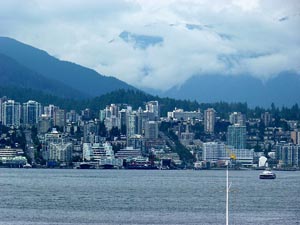How the Vancouver film industry went from bust to boom

Alarmist talk in January 2013 about a withering Vancouver media sector in the face of tax credit-related increases in Ontario and Quebec has been replaced by growing optimism and a production boom, local industry leaders told Vancouver city council on Tuesday.
“The feeling of the business is quite positive. There is a lot of activity and has been for some time,” Creative B.C. president and CEO Richard Brownsey told Playback Daily on Wednesday.
If anything, the B.C. industry 18 months later is well-placed to take on Ontario to win still more business from Hollywood.
“We have great respect for the industry in Ontario. We have always competed with them for that work. The feeling is we are now able to compete,” Brownsey insisted.
A day earlier, Brownsey and Peter Leitch, chair of the Motion Picture Production Industry Association, led a blue-ribbon panel that provided an update on the Vancouver screen arts industry to city councilors.
They reported Vancouver’s film office statistics that pointed to 1,425 filming days in the city in 2013, comprising 30 TV series, including Arrow and Once Upon a Time, 11 pilots, 18 feature films, including Godzilla, 14 MOWs and 45 documentaries or miniseries.
And the first quarter of 2014 showed a year-over-year 36% rise in production activity, the update indicated.
But more importantly for Vancouver, a 2013 that started with B.C. film workers rallying against a feared exodus of local producers and talent to eastern Canada ended with bustling local activity.
And major studios that ventured elsewhere for location shooting in many cases returned for the stability of Vancouver as a stable production locale, Ian McKay, CEO of the Vancouver Economic Commission, told city council.
“A lot of the studios have explored other centres with their new and tempting incentives and discovered it was worth coming back to the tried and true model of Vancouver where the tax regime is predictable, the exchange rate is favourable, and most importantly the studios in and around Vancouver provide excellent infrastructure,” he argued.
Brownsey explained to Playback that reducing red tape to get Hollywood projects into Vancouver, sharing a time zone with Los Angeles, and spotlighting B.C.’s talent and infrastructure, helped restore the province to vitality.
“Tax credits are a piece of the puzzle. They aren’t the entire puzzle,” he added when asked how B.C. managed to withstand more generous subsidies in Ontario and Quebec.
The tax credit in Quebec has since pulled back in value, and a growing digital media sector in B.C. after Sony Imageworks brought its headquarters to Vancouver and Industrial Light & Magic expanded locally has also helped spur optimism.

 The definitive CDN broadcast and production resource.
The definitive CDN broadcast and production resource.










